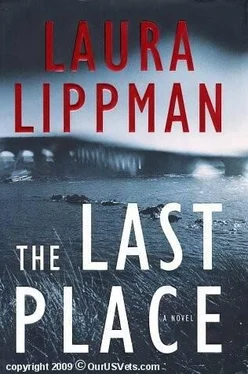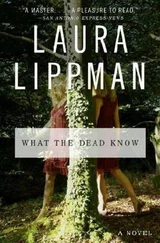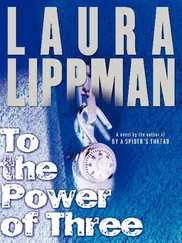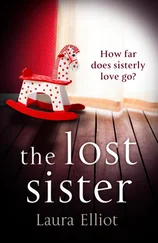“A kid would have a hard time keeping a secret like that.”
“Well, it had to be an accident. Believe me, the insurance investigators were all over it. It was awful, what they put me through. You’d think I’d set the fire. As if I’d kill a woman to collect fifty thousand bucks. You saw the lot; it wasn’t even worth my while to rebuild. And Hazel Ligetti was like a good municipal bond fund, paying off a little every month. A dream tenant. Now, some properties you wish you could burn down because of what the renters do to them. But Hazel was neat as a pin. When you’re a landlord, there’s no downside to a woman who doesn’t entertain, doesn’t smoke, and has good hearing.”
“Good hearing?”
“Doesn’t play the television or radio loud, so you don’t have any neighbor complaints. Why, Hazel didn’t even have a cat, the way so many of these single women do.”
“Where did she work?”
“For the state. She was a secretary at the Department of Health and Mental Hygiene up in Hagerstown. Administrative assistant is what she called herself. Why do you think that is?”
“Because everyone wants to sound important,” Tess said, fingering the embossed business card that read HERBERT L. PROCTOR, CEO, HALCION PROPERTIES INC. She wondered if he had meant to name his company after the prescription drug, or if he was simply a poor speller. “Did anyone claim her body or make arrangements for the funeral?”
“I did.” Tess felt a stab of guilt for her harsh thoughts about Proctor. “She had a little life insurance policy, and I do mean little. I had to dip into my own pocket to make up the difference.” Tess no longer felt guilty.
“Where she’s buried?”
“Local cemetery.”
“Is there a marker?”
“A little one, very plain.” Tess frowned, and Proctor rushed to defend his cheapness. “That’s the way they do it, that’s their custom. Plain boxes, plain stones.”
“They?”
“Jews.”
“Hazel Ligetti was Jewish? Was it her husband’s name?”
“No. I told you, she was never married. I assumed she was Eye-talian myself, and I asked her one time if she was a good cook. She explained to me that the name was Hungarian, but it was supposed to be spelled slightly different-L-E-G-E-T-E, pronounced Le-get. Immigration changed the e to an i.”
“And changed a Jew into an Italian.”
“Well, who could complain about that? It’s not much of an improvement, but it’s definitely a step up.”
“Umph,” Tess said. It was a noise she had learned to make when she didn’t know what to say. Tess’s mother’s maiden name was Weinstein, and Tess’s own middle name was Esther, from the queen of the Jews- not the one in the Bible, but her grandmother’s sister, the oldest and most imperious female in a family of imperious females. “That Essie,” Gramma Weinstein always said, “thought she was the queen of the Jews.” But with the surname of Monaghan and her summer crop of freckles coming in, Tess looked like the good Irish Catholic girl she never was.
“Could you tell me where the local cemetery is?”
“Why?”
“Someone ought to say kaddish,” she said.
“Is that like gesundheit?”
“Sort of.”
It wasn’t much of a trick to find Hazel Ligetti’s grave in the small cemetery at the edge of town. The stone was plain, as Proctor had said, with only Hazel’s name, the forty-eight-year span that was her birth and her death, a Star of David, and a few lines in Hebrew, which Tess had never learned to read.
But there was one unexpected touch: a few small stones left on the marker’s rim.
Someone else knew Hazel was Jewish, Tess thought. Someone who knows this custom.
It took a beat for another thought to occur: Someone knew Hazel. Someone has visited her.
But how could that be? She had no family, and Proctor said no friend had come forward when she died. But someone had visited this grave, someone who was not fooled by the Italian-sounding name.
Then again, the stone had a Star of David, some lines of Hebrew. Perhaps a visitor to a nearby marker, a more popular one, had felt sorry for lonely Hazel. Tess found a pebble and added it to the others. She felt a strange tickle at the back of her neck, that feeling sometimes described as someone walking across your grave. Tess had never understood that description. Dead, one felt nothing. She could jump up and down on this spot right now, and Hazel Ligetti would never know.
On the way back to Baltimore, Tess stopped at Antietam. It was her favorite of the various Civil War battlefields she had visited, and she had visited many. It seemed to have been her fate to take up with men who were obsessed with the Civil War. Crow was so avid he had threatened to get involved with local reenactors, but his hours weren’t compatible with marching around in a gray suit. (Crow, a romantic with a twisted family tree with branches in Virginia, would choose the South, of course. Most reenactors did.) Jonathan Ross had been more bookish, content with the oeuvre of Foote and Catton and the Shaaras. When they played Botticelli, he had used obscure-to-Tess Civil War officers to stump her.
Then again, perhaps all men were obsessed with the Civil War, or war in general. Why was that? She supposed a certain boyish interest in things with engines led, inevitably, to tanks and aircraft carriers and fighter planes. But why did they know all the generals’ names and all those battles? Tess found war baffling. Even war movies baffled her, with the sole exception of The Great Escape. Getting out, running away-that was an impulse she could understand. Face-to-face combat all day long, until the cornfields ran red, was unfathomable.
How did men do it? Tess asked herself, not for the first time. How did they talk themselves into thinking it made sense to march toward gunfire for some larger, greater cause? Even if she believed in a cause-and it seemed to her a good idea to keep the United States united and to abolish slavery-she couldn’t imagine sacrificing herself for one. She didn’t want to die.
Damn. She wished she hadn’t let her thoughts go there. This was the trap she had sidestepped in the graveyard. A door in her brain opened up and took her over the threshold into the abyss of infinity. She was going to die one day, she was going to cease to exist. How could that be? She wanted to believe in higher powers, in reincarnation, in anything that held the promise that she wouldn’t simply cease to be. But she didn’t think it worked that way. You had to be a believer first, and only then did you get the reward of afterlife, or second life, or perpetual life through reincarnation. You couldn’t bargain or barge your way into immortality, like some desperate man fleeing the Titanic, holding a child in his arms. You had to believe in something first. The only thing Tess honestly believed was that she was scared of dying.
She drove back to Baltimore as fast as she could, racing the sun, telling herself that her only concern was getting back to the city before its early rush hour began.
“You’re going to die, Tess.”
It was Monday and she was back in Dr. Armistead’s office, sulkily pulling on the wing chair’s fringe. It had seemed to her that her Antietam epiphany was just the sort of story one brought to therapy, but Dr. Armistead did not seem impressed or even interested. It was as if she had shown up for a dinner party and the host had frowned at the label on her proffered bottle of wine.
“Well, I don’t know what else to tell you. I thought it was the most interesting moment of my week.”
“Really? What about your encounter with that man in the bar?”
“Troy Plunkett? There was nothing particularly interesting about that. It’s what I do. I talk to people. Sometimes I have to pay them.”
Читать дальше












